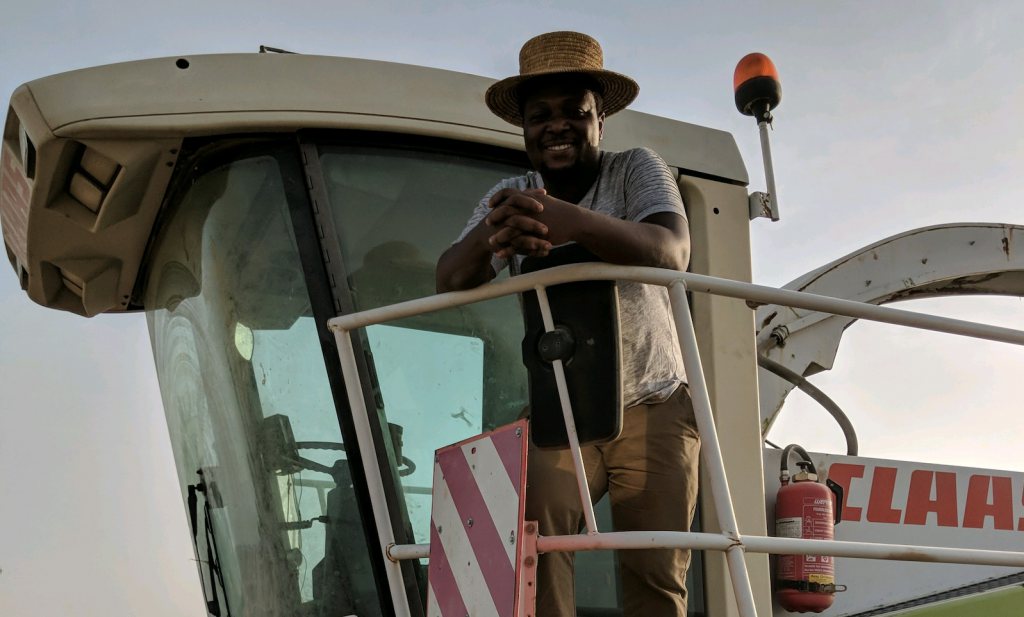"We need to increase agricultural productivity and industrialized agriculture in Africa in order to bring real impact to smallholder farming," says Nigerian food expert and agronomist Babatunde Olarewaju. In this week's edition of Letter to my Farmers, he talks about the importance mechanization in order to ensure African food security.
In many developing countries, agriculture accounts for the largest labour force due to its druggery nature, its manual means of production. Farming is being carried out using crude means, which is laborious and productivity seems very low. In this system, cost per unit area of production is very high and yield is low. Therefore, food sufficiency is still a fairytale in most developing countries, as population explosion is yet to be under control. However, several interventions have been implemented to address this issue over the years, but little results have been achieved.
These pending issues need to be addressed. We need to develop local capacity through training to ensure that more technical personnel for building, repairs and maintenance of agricultural machines are readily available locally. Furthermore, we need to provide more subsidies for agricultural technology and machines procurement and to encourage the private sector to provide mechanization services beyond the use of just tractors.
In conclusion, we need to increase agricultural productivity and industrialized agriculture in Africa in order to bring real impact to smallholder farming.
Yours-in-Service
Babatunde
In his weekly column Letter to my Farmers, Babatunde Olarewaju writes about personal experiences and insights on farming, curated through working with smallholder farmers in Africa. Last week's letter is available here.
Technology development is directly proportional to food securityIt is believed that the more technology advanced a nation operates, the more food secured it would be. Therefore, technology development is directly proportional to food security. Thus, mechanization has a lot to do in achieving food security in Africa. In Nigeria, the number of tractors used is estimated to be 10 units per 100 square km, which is extremely low likewise the use of other agricultural machines and these need to be addressed appropriately to achieve food security. Also, the number of privately owned mechanization services is low, coupled with small numbers of technical personnel in this subsector.
These pending issues need to be addressed. We need to develop local capacity through training to ensure that more technical personnel for building, repairs and maintenance of agricultural machines are readily available locally. Furthermore, we need to provide more subsidies for agricultural technology and machines procurement and to encourage the private sector to provide mechanization services beyond the use of just tractors.
In conclusion, we need to increase agricultural productivity and industrialized agriculture in Africa in order to bring real impact to smallholder farming.
Yours-in-Service
Babatunde
In his weekly column Letter to my Farmers, Babatunde Olarewaju writes about personal experiences and insights on farming, curated through working with smallholder farmers in Africa. Last week's letter is available here.



